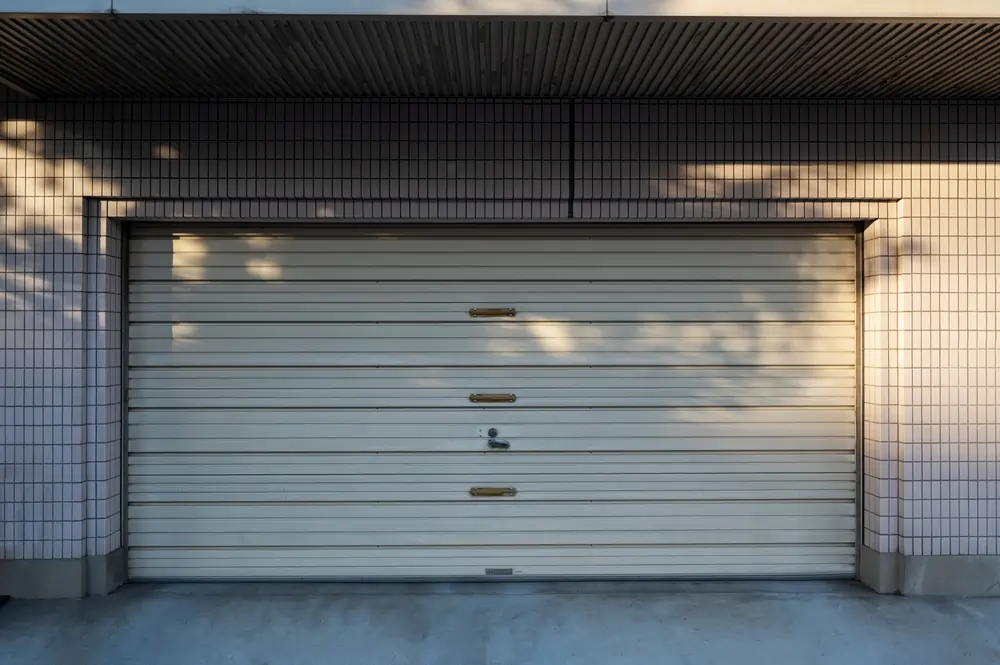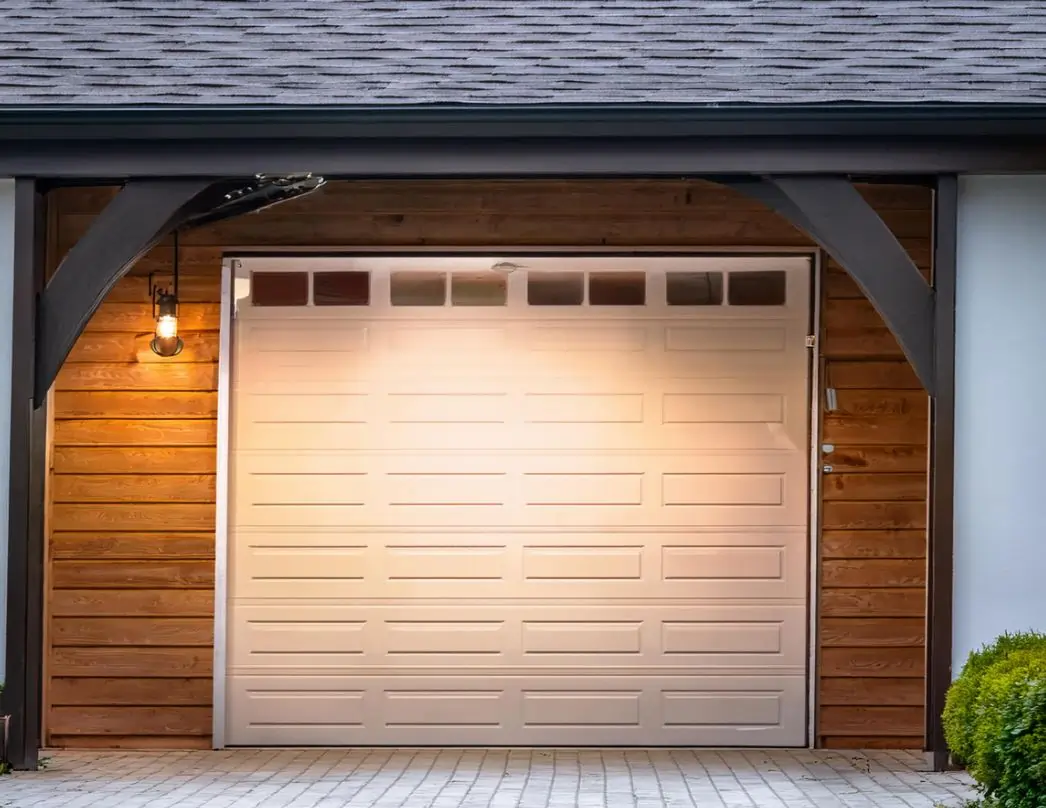Are you struggling with an outdated or damaged single car garage door? You’re not alone. Many homeowners face the challenge of choosing the right door for their needs. But don’t worry, we’ve got you covered.
In this comprehensive guide, we’ll explore everything you need to know about single car garage doors in 2024. From sizes and materials to costs and installation, we’ll help you make an informed decision.
Let’s dive in and discover how to transform your garage entrance into a functional and stylish asset for your home.
Single Car Garage Door
Thinking of upgrading or installing a new garage door for your single car garage? Whether you’re building a new home or just giving your old garage a makeover, choosing the right garage door can feel overwhelming. With so many materials, sizes, and price points to consider, where do you even start? Here’s a fun fact—did you know that the average garage door opens and closes over 1,500 times a year? That’s a lot of wear and tear! In this guide, we’ll break down everything you need to know about single car garage doors, from dimensions to installation and maintenance. Let’s dive in and get you garage-ready!
Standard Single Car Garage Door Sizes
Overview of common garage door dimensions
When it comes to single garage door dimensions, there’s no one-size-fits-all solution. However, certain sizes are more common than others.
But what if your garage doesn’t fit these standard sizes? Don’t worry, we’ll cover that too.
Standard height and width for single car garages
The most common single car garage door size is:
- Width: 8 to 9 feet
- Height: 7 to 8 feet
These dimensions typically accommodate most vehicles comfortably. But remember, your specific needs might vary.
Custom size options for unique garage layouts

If standard sizes don’t work for you, custom options are available. These can range from 6 feet wide for compact cars to over 10 feet for larger vehicles.
How to measure your garage door frame for a perfect fit
Accurate measurements are crucial. Here’s a quick guide:
- Measure width at three points: top, middle, and bottom
- Measure height on both sides and in the center
- Measure the side room, headroom, and backroom
Pro tip: Always double-check your measurements to avoid costly mistakes.
Single Car Garage Door Materials: Pros and Cons
Popular materials (steel, wood, aluminum, fiberglass)
Let’s compare the most common materials:
- Steel garage doors: Durable and low-maintenance
- Wooden garage doors: Classic look but require more upkeep
- Aluminum garage doors: Lightweight and resistant to rust
- Fiberglass garage doors: Durable and can mimic wood grain
Durability and maintenance of each material
- Steel garage door maintenance is minimal, typically requiring only occasional cleaning
- Wooden doors need regular painting or staining to prevent weathering
- Aluminum doors are rust-resistant but can dent easily
- Fiberglass doors are low-maintenance but can fade over time
How each material affects the cost of the door

Material choice significantly impacts price. Here’s a rough breakdown from least to most expensive:
- Steel
- Aluminum
- Fiberglass
- Wood
Insulation options for energy efficiency
Garage door insulation options can help reduce energy costs. R-value measures insulation effectiveness – the higher, the better.
- Polystyrene panels: R-value of 3-5
- Polyurethane foam: R-value of 6-9
Did you know? Energy-efficient garage doors can save you up to 15% on your energy bills.
Costs of Single Car Garage Doors in 2024
Average cost breakdown for different door materials
Garage door costs 2024 vary widely based on material:
- Steel: $600 – $2,000
- Aluminum: $700 – $2,500
- Fiberglass: $1,000 – $3,000
- Wood: $1,200 – $4,000
Cost of standard vs. custom garage doors
Custom doors typically cost 30-50% more than standard sizes. But they can be worth it for a perfect fit.
Additional costs (labor, insulation, smart tech add-ons)
Don’t forget these potential extras:
- Installation: $200 – $500
- Insulation: $50 – $500
- Smart tech: $100 – $500
Tips for saving money without compromising quality
- Compare quotes from multiple providers
- Consider a mid-range material like steel
- Opt for standard sizes if possible
- Install during off-peak seasons
How to Install a Single Car Garage Door
Tools needed for installation
For DIY garage door installation, you’ll need:
- Wrenches and sockets
- Power drill
- Level
- Tape measure
- Ladder
Step-by-step installation process (DIY vs. professional)
- Remove old door
- Install horizontal tracks
- Assemble door panels
- Install torsion spring system
- Connect opener
Warning: Torsion springs can be dangerous. Consider professional help for this step.
Safety tips during installation
- Always work with a partner
- Wear safety goggles and gloves
- Be cautious with heavy door panels
Timeframe and complexity of installation projects
Professional installation typically takes 3-5 hours. DIY can take a full day or more, depending on experience.
Maintenance Tips for Longevity of Your Garage Door

Routine maintenance to extend the door’s lifespan
Regular maintenance can double your door’s lifespan. Key tasks include:
- Visual inspection
- Tightening hardware
- Balancing the door
Lubrication and cleaning tips
Apply silicone-based lubricant to moving parts annually. Clean the door with mild soap and water to prevent rust and decay.
Common garage door issues and quick fixes
- Noisy operation: Usually solved by lubrication
- Door won’t close fully: Check for obstructions or misaligned sensors
- Door is heavy to lift: Springs may need adjustment
How to identify when your garage door needs replacement
Signs it’s time for a new door:
- Visible damage or warping
- Frequent breakdowns
- Rising energy bills
- Outdated style
Remember, a well-maintained door can last 15-30 years. But how do you choose the best single car garage door for your home?
The key is to balance your budget with your needs. Consider factors like climate, vehicle size, and home style. Don’t forget about garage door safety features and garage door opener options.
Residential garage doors come in a variety of styles. From traditional raised panels to modern flush designs, there’s a door to match every home. And with garage door colors ranging from classic white to bold statement hues, you can easily boost your curb appeal.
When it comes to garage door brands, top names include Clopay, Amarr, and Wayne Dalton. Each offers unique features and warranties.
For tech enthusiasts, smart garage door systems offer convenience and security. Control your door from your smartphone or integrate it with your home automation system.
If you’re environmentally conscious, look into eco-friendly garage doors. These doors use sustainable materials and provide excellent insulation for energy savings.
Remember, your garage door is more than just an entrance for your car. It’s a significant part of your home’s facade and can account for up to 30% of your home’s visible exterior. Choose wisely, and you’ll enjoy the benefits for years to come.
Whether you opt for DIY garage door installation or professional help, make sure to prioritize safety. Garage door safety sensors are crucial for preventing accidents.
Lastly, don’t forget about garage door warranties. A good warranty can save you money on repairs and provide peace of mind.
Conclusion
Your single car garage door isn’t just about functionality—it’s a significant part of your home’s curb appeal, energy efficiency, and security. Whether you’re opting for a traditional steel door or going the eco-friendly route with a well-insulated wooden one, understanding the options can help you make the right choice. Ready to upgrade your garage door? With the insights you’ve gained here, you’re well-equipped to make a smart decision! If you have any questions or tips, feel free to share them in the comments below!
In conclusion, choosing the right single car garage door involves careful consideration of size, material, cost, and style. By understanding these factors, you can make an informed decision that enhances your home’s functionality and aesthetics.
Ready to upgrade your garage door? Start by measuring your current door and exploring different materials. With this guide, you’re well-equipped to find the perfect door for your needs and budget.
Remember, a garage door is an investment in your home. Choose wisely, maintain regularly, and enjoy the benefits for years to come. Happy garage door hunting!

